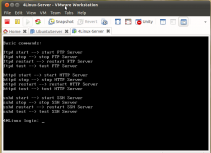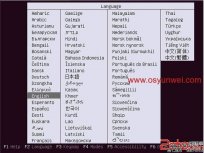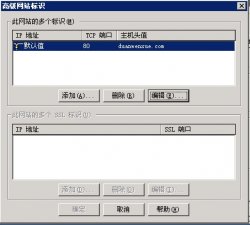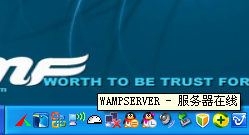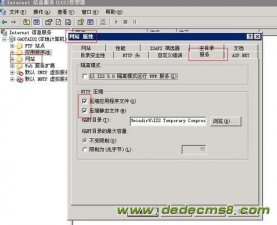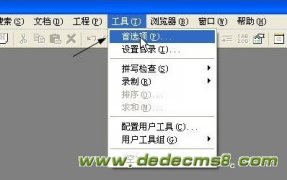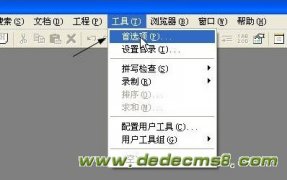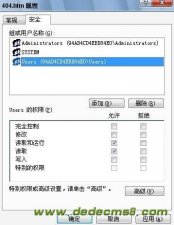信息的时候经常提示:cannot modify header information - headers already sent by (......)。其实已经实现需要的效果了,就是这个错误信息看着不爽,网上找了很多办法,综合使用得到的解决方法是
1在页面顶部的php标签中加入ob_start();
2在返回的信息下面加入ob_end_flush();
这样就可以屏蔽错误信息的现实了
另外转一下其他人的方法,也许在其他情况下也会有效
If you got this message: "Warning: Cannot modify header information - headers already sent by ...."
如果在执行php程序时看到这条警告:"Warning: Cannot modify header information - headers already sent by ...."
Few notes based on the following user posts:
有以下几种解决方法:
1. Blank lines (空白行):
Make sure no blank line after <?php ... ?> of the calling php script.
检查有<?php ... ?> 后面没有空白行,特别是include或者require的文件。不少问题是这些空白行导致的。
2. Use exit statement (用exit来解决):
Use exit after header statement seems to help some people
在header后加上exit();
header ("Location: xxx");
exit();
3. PHP has this annoying problem, if your HTML goes before any PHP code or any header modification before redirecting to certain page, it'll said "Warning: Cannot modify header information - headers already sent by ...." Basically anytime you output to browser, the header is set and cannot be modified. So two ways to get around the problem:
3a. Use Javascript (用Javascript来解决):
<? echo "<script> self.location(\"file.php\");</script>"; ?>
Since it's a script, it won't modify the header until execution of Javascript.
可以用Javascript来代替header。但是上面的这段代码我没有执行成功... 另外需要注意,采用这种方法需要浏览器支持Javascript.
3b. Use output buffering (用输出缓存来解决):
<?php ob_start(); ?>
... HTML codes ...
<?php
... PHP codes ...
header ("Location: ....");
ob_end_flush();
?>
This will save the output buffer on server and not output to browser yet, which means you can modify the header all you want until the ob_end_flush() statement. This method is cleaner than the Javascript since Javascript method assumes the browser has Javascript turn on. However, there are overhead to store output buffer on server before output, but with modern hardware I would imagine it won't be that big of deal. Javascript solution would be better if you know for sure your user has Javascript turn on on their browser.
就像上面的代码那样,这种方法在生成页面的时候缓存,这样就允许在输出head之后再输出header了。本站的许愿板就是采用这种方法解决的header问题。
在后台管理或者有时候在论坛,点击一个页面,页顶会出现
Warning: Cannot modify header information - headers already sent by....
这类语句,造成这个原因是因为setcookie语句的问题。
cookie本身在使用上有一些限制,例如:
1.呼叫setcookie的敘述必須放在<html>標籤之前
2.呼叫setcookie之前,不可使用echo
3.直到網頁被重新載入後,cookie才會在程式中出現
4.setcookie函數必須在任何資料輸出至瀏覽器前,就先送出
5.……
基於上面這些限制,所以執行setcookie()函數時,常會碰到"Undefined index"、"Cannot modify header information - headers already sent by"…等問題,解決"Cannot modify header information - headers already sent by"這個錯誤的方法是在產生cookie前,先延緩資料輸出至瀏覽器,因此,您可以在程式的最前方加上ob_start();這個函數。这样就可以解决了。
4.set output_buffering = On in php.ini (开启php.ini中的output_buffering )
set output_buffering = On will enable output buffering for all files. But this method may slow down your php output. The performance of this method depends on which Web server you're working with, and what kind of scripts you're using.
这种方法和3b的方法理论上是一样的。但是这种方法开启了所有php程序的输出缓存,这样做可能影响php执行效率,这取决于服务器的性能和代码的复杂度。
昨天想用PHP写一段下载文件的代码,因为不想得怎么设置HTTP协议就直接到php.net上找header()函数的事例,很多代码,我直接拷贝了一段,
<?php
$file = 'filetest.txt';//filetest.txt文件你随便写点东西进去就好了
header("Content-Disposition: attachment; filename=" . urlencode($file));
header("Content-Type: application/force-download");
header("Content-Type: application/octet-stream");
header("Content-Type: application/download");
header("Content-Description: File Transfer");
header("Content-Length: " . filesize('filetest.txt'));
flush(); // this doesn't really matter.
$fp = fopen($file, "r");
while (!feof($fp))
{
echo fread($fp, 65536);

